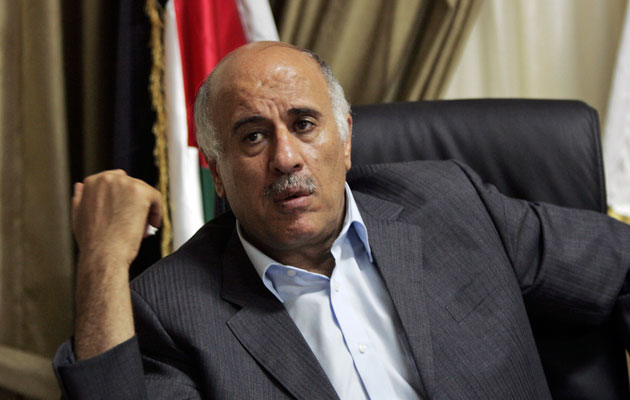As if Michel Platini did not have problems enough, he now finds himself landed in the middle of an Arab World Cup qualifying row.
The French president of UEFA is also head of the 2018 World Cup organising committee which has apparently turned logic on its head in a dispute over the venue of a tie between Palestine and Saudi Arabia.
Palestine’s football association has protested angrily to Sheikh Salman bin Ebrahim Al Khalifa in his role as president of the Asian Football Confederation – knowing full well that he was a party to the decision.
Sepp Blatter, similarly embattled along with Platini in the crisis which has engulfed world federation FIFA, is reportedly furious at the turn of events which threatens to undermine his attempt to keep the sporting peace between Palestine and Israel. Hence a meeting of all parties has been summoned by FIFA in Zurich on Monday.
A Palestine proposal to suspend Israel from world football over access for athletes and sporting goods was dropped at FIFA Congress in May in return for the creation of a monitoring group led by South African businessman Tokyo Sexwale.
UEFA and Platini had worked hard previously to resolve the access issue despite Palestinian anger at the staging of the 2013 European Under-21 finals in Israel. Now any goodwill towards Platini, from the Palestinian side at least, has been undone. UEFA itself may feel the backlash in due course from highly-vocal pro-Palestinian protest groups.
The row also touches on Platini’s ambition to gather enough votes to secure the FIFA presidency next February.
Palestine and Saudi Arabia were both drawn in a five-team second round group in the Asian qualifying tournament for the 2018 World Cup in Russia. Originally they were due to meet in Palestine on April 14 this year and play the return in Saudi Arabia on June 11.
However the Saudis, claiming unspecified domestic force majeure asked the PFA for the matches to be switched around. Thus the original first game was postponed, with the agreement of both Palestine and FIFA. The teams met for the first time on June 11 in Dammam, with the Saudis winning 3-2.
So far, so good. However the Saudis – still claiming mysterious force majeure – then demanded that the return be played not in Palestine but at a neutral venue on October 13. As a goodwill gesture, they offered to bear all the staging costs, including the Palestine delegation’s transport and accommodation.
Whatever the Saudis meant by force majeure has not been clarified. Most likely it was political, because they did not want to appear beholden to the Israeli security services for the right to travel by road from Amman in Jordan to Ramallah on the West Bank.
The PFA president, Jibril Rajoub, angered at a blatant attempt to buy him off, responded by offering to organise a helicopter shuttle from Amman directly into Ramallah – a standard method of flying Arab country diplomats into the West Bank to avoid problems with the Israelis. The Saudis ignored him.
Aside from the usual complications involved in a match in Palestine, the Saudis had no logical or obvious excuse for wanting to avoid going to Ramallah. They could even have refused to play – quoting the easy get-out of security concerns – and forfeited the match 3-0 (plus a fine).
Instead, however, the Saudis took their ‘neutral venue’ demand to Platini’s World Cup organising committee. A three-man ‘bureau’ decided, for no stated reason, to confirm the switch request.
The other members who took the decision were Platini’s fellow FIFA exco members in Sheikh Salman and Kuwaiti Sheikh Ahmad Al-Fahad Al-Sabah. The latter pair were already considered to be aligned, politically, with the Saudis; they are also known supporters of Platini’s bid for the FIFA presidency.
Hence, no surprise that they took the decision they did.
Rajoub fired off an angry letter of protest to Sheikh Salman, expressing the PFA’s “shock” at a decision of which he was offered no warning or even consultation.
He wrote: “The PFA has tried, in every way possible . . . to accommodate our Saudi brethren’s requests as regarding the force majeure situation; including an option to fly the Saudi team from Amman to Ramallah; offers to which we received no reply.”
The outlook for the Palestinian protest is not good. Article 21.1 of the World Cup regulations states baldly that “if the associations cannot agree on the venues for the matches, the FIFA Organising Committee shall make the final decisions.”
This is exactly what Platini has done. He may be content to defy logic again, as he appears to have done in a different FIFA context. At least he knows he has kept his two most important Asian colleagues onside.






